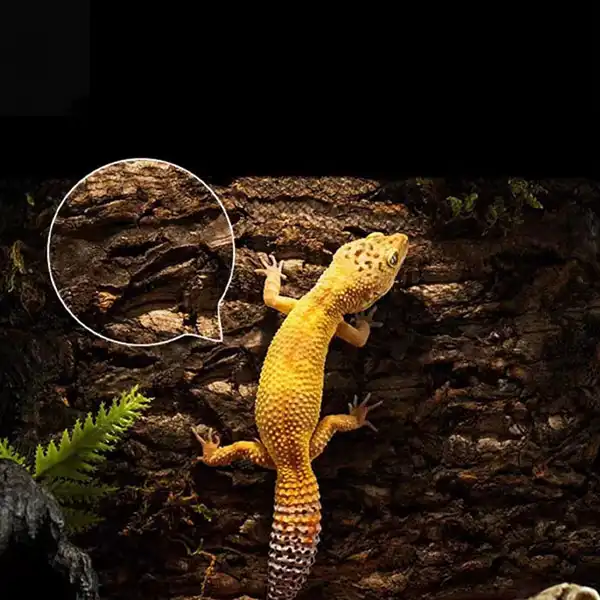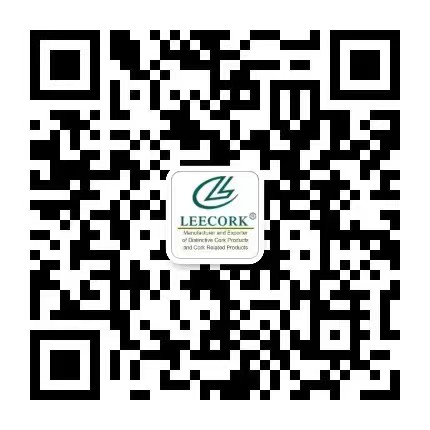Wholesale Cork Bark: Nature's Secret for Eco-Friendly Insulation?
2025-08-19 16:32:56
Wholesale cork bark is indeed nature's secret for eco-friendly insulation, offering a sustainable and effective solution for environmentally conscious builders and homeowners. As the demand for green building materials continues to rise, cork bark has emerged as a frontrunner in the insulation market. This natural material, harvested from the cork oak tree, boasts impressive thermal and acoustic properties while maintaining a minimal environmental footprint. Unlike synthetic alternatives, wholesale cork bark is renewable, biodegradable, and requires minimal processing, making it an ideal choice for those seeking to reduce their carbon footprint without compromising on insulation performance. With its unique cellular structure and natural resilience, cork bark provides excellent insulation against heat, cold, and sound, all while contributing to healthier indoor air quality. As we delve deeper into the world of cork bark insulation, we'll explore its advantages over synthetic options, its journey from tree to home, and some surprising benefits that make it a truly remarkable eco-friendly insulation solution.

Cork Bark vs. Synthetic Insulation: The Green Battle
When it comes to insulation, the debate between natural and synthetic materials has been ongoing. However, wholesale cork bark is steadily gaining ground as a superior eco-friendly alternative to traditional synthetic insulations. Let's examine how cork bark stacks up against its artificial counterparts:
Environmental Impact
Cork bark is a renewable resource that can be harvested without harming the tree, allowing for continuous production over the tree's lifespan of 150-200 years. In contrast, synthetic insulations often rely on non-renewable petroleum-based materials and energy-intensive manufacturing processes. The production of cork bark insulation generates significantly lower carbon emissions and requires minimal energy input, making it a more sustainable choice for environmentally conscious consumers.
Durability and Longevity
While synthetic insulations may degrade over time, losing their effectiveness, cork bark's natural properties allow it to maintain its insulating capabilities for decades. Its cellular structure remains intact, resisting compression and breakdown, which means less frequent replacements and reduced waste. This longevity not only benefits the environment but also provides cost savings for homeowners in the long run.
Health and Safety
Cork bark is naturally hypoallergenic, resistant to mold and mildew, and doesn't off-gas harmful chemicals. These properties contribute to better indoor air quality and a healthier living environment. Synthetic insulations, on the other hand, may contain volatile organic compounds (VOCs) and other potentially harmful substances that can affect indoor air quality and pose health risks.
Fire Resistance
Cork bark possesses inherent fire-resistant properties, making it a safer option for home insulation. It doesn't produce toxic fumes when exposed to fire, unlike some synthetic materials. This natural fire resistance adds an extra layer of safety to buildings insulated with cork bark.
From Tree to Home: Cork Bark's Sustainable Journey
The journey of cork bark from its natural habitat to your home is a testament to sustainable practices and eco-friendly production. Understanding this process helps appreciate the true value of cork bark as an insulation material:
Harvesting with Care
Cork bark is harvested from the cork oak tree (Quercus suber) in a process that's uniquely sustainable. The outer bark is carefully stripped from the tree once every 9-12 years, without harming the tree itself. This harvesting method allows the tree to regenerate its bark, making cork a truly renewable resource. The first harvest typically occurs when the tree is about 25 years old, and a single tree can provide cork for over 200 years.
Minimal Processing
After harvesting, the cork bark undergoes minimal processing to prepare it for use as insulation. For businesses interested in wholesale cork bark, the material is often supplied in bulk after being boiled to remove impurities and increase elasticity. It's then compressed and shaped into sheets or granules, depending on the intended application. This process requires very little energy and produces almost no waste, as even cork dust can be used in other products.
Carbon Negative Production
One of the most remarkable aspects of cork bark production is its carbon-negative impact. Cork oak forests, known as Montados, act as significant carbon sinks, absorbing millions of tons of CO2 annually. The regular harvesting of cork bark actually stimulates the trees to absorb more CO2, enhancing their role in mitigating climate change. This means that using cork bark insulation not only reduces your carbon footprint but actively contributes to carbon sequestration.
Local Economies and Biodiversity
The cork industry supports local economies in cork-producing regions, primarily in Mediterranean countries like Portugal and Spain. These cork oak forests also play a crucial role in preserving biodiversity, providing habitats for numerous plant and animal species, some of which are endangered. By choosing cork bark insulation, consumers indirectly support these ecosystems and the communities that depend on them.

3 Surprising Benefits of Cork Bark Insulation
While the eco-friendly nature of cork bark insulation is well-known, there are several surprising benefits that make it an even more attractive option for homeowners and builders:
Natural Sound Absorption
Cork bark's cellular structure doesn't just provide thermal insulation; it also offers excellent acoustic properties. The material's ability to absorb sound waves makes it an ideal solution for reducing noise transmission between rooms or from outside sources. This natural sound dampening effect can significantly improve the comfort and privacy of living spaces, making cork bark insulation particularly valuable in urban environments or multi-family dwellings. For those looking to purchase in bulk, wholesale cork bark is an excellent way to ensure cost-effectiveness in larger projects.
Pest Resistance
Unlike some other natural insulation materials, cork bark is naturally resistant to pests, including termites and other insects. This resistance is due to the presence of suberin, a waxy substance in cork cells that insects find unpalatable. This natural pest resistance eliminates the need for chemical treatments, further enhancing cork's eco-friendly profile and reducing maintenance concerns for homeowners.
Moisture Regulation
Cork bark has a unique ability to regulate moisture levels within a building. It can absorb excess moisture from the air when humidity is high and release it back when the air becomes dry. This natural moisture-regulating property helps maintain a comfortable and healthy indoor environment, reducing the risk of mold growth and improving air quality. Additionally, this feature can contribute to energy savings by reducing the load on heating and cooling systems.
These surprising benefits, combined with its core insulating properties, make cork bark an exceptionally versatile and valuable material for eco-conscious construction and renovation projects.
Conclusion
Wholesale cork bark truly stands out as nature's secret for eco-friendly insulation. Its remarkable properties, from superior thermal and acoustic insulation to natural pest resistance and moisture regulation, make it an excellent choice for environmentally conscious builders and homeowners. The sustainable harvesting process, minimal environmental impact, and support for biodiversity further cement cork bark's position as a leading green building material.
As we face increasing environmental challenges, embracing sustainable solutions like cork bark insulation becomes more crucial than ever. By choosing cork, we not only improve our living spaces but also contribute to the preservation of unique ecosystems and support sustainable industries.
If you're considering a green renovation or building project, cork bark insulation deserves serious consideration. Its blend of performance, sustainability, and additional benefits makes it a smart choice for those looking to create healthier, more efficient living spaces while minimizing their environmental impact.
Ready to explore the benefits of cork bark insulation for your project? Look no further than Xi'an Leecork Co., Ltd. As a leading manufacturer and supplier of cork products since 2002, we've been providing high-quality, eco-friendly solutions to clients in over 50 countries worldwide. Our expertise in cork materials, combined with our commitment to sustainability, makes us the ideal partner for your insulation needs.
Whether you're an individual buyer, a corporate purchasing staff, or an offline store owner, we have the products and knowledge to meet your specific requirements. Join our global network of satisfied customers, including industry pioneers who have been with us since our establishment.
Take the first step towards a greener, more comfortable living space. Contact us today at info@leecork.com to learn more about our wholesale cork bark insulation options and how they can benefit your project. Let's work together to create a more sustainable future, one cork-insulated building at a time.
References
1. Silva, S. P., et al. (2005). Cork: properties, capabilities and applications. International Materials Reviews, 50(6), 345-365.
2. Pereira, H. (2007). Cork: biology, production and uses. Elsevier.
3. Gil, L. (2015). New cork-based materials and applications. Materials, 8(2), 625-637.
4. Rives, J., et al. (2011). Environmental analysis of the production of natural cork stoppers in southern Europe (Catalonia – Spain). Journal of Cleaner Production, 19(2-3), 259-271.
5. Pinto-Correia, T., et al. (2011). The changing role of farming in a peripheric and marginal area: new trends in sustainable development of rural areas. European Countryside, 3(1), 1-15.
6. Amorim, S. A. (2016). Sustainability report. Corticeira Amorim, S.G.P.S., S.A.
You May Like
0Related Industry Knowledge


